After the Deluge: The Devastating Impacts of Maiduguri Floods on Business Owners
Following the recent flooding in Maiduguri, some business owners battling multi-million naira financial losses share their stories with HumAngle.
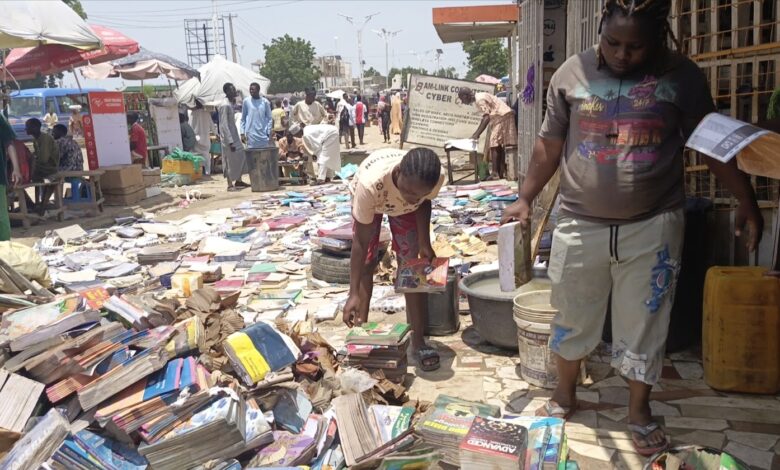
As the flood waters in Maiduguri, the capital of Borno State, northeastern Nigeria, begin to recede, the submerged city is facing the effects of the Sept. 10 incident. A significant portion of the state capital has been damaged, leaving local business owners to face considerable financial and emotional losses. However, traders have started reopening their shops for business activities.
HumAngle visited the general area of the post office to gauge the mood for businesses that have been underwater for more than a week and to assess the impact on their investments. The situation evoked nothing but nostalgic emotions.
Nostalgia
As Sarah Adamu looked at the ruins of her once-thriving restaurant near Sanda Kyarimi Park, her voice trembled with emotions. The restaurant used to be a beloved and cozy gathering spot, filled with the warmth and chatter of loyal customers.
“I never imagined I would see my life’s work reduced to this,” she said. “Everything we toiled to build was washed away in a matter of hours. I lost my cooking implements, my recently acquired expensive show glasses, about ₦5 million worth of investment – and my deep freezers. I spent ₦1.5 million on the interior designs, and today, everything is destroyed.”
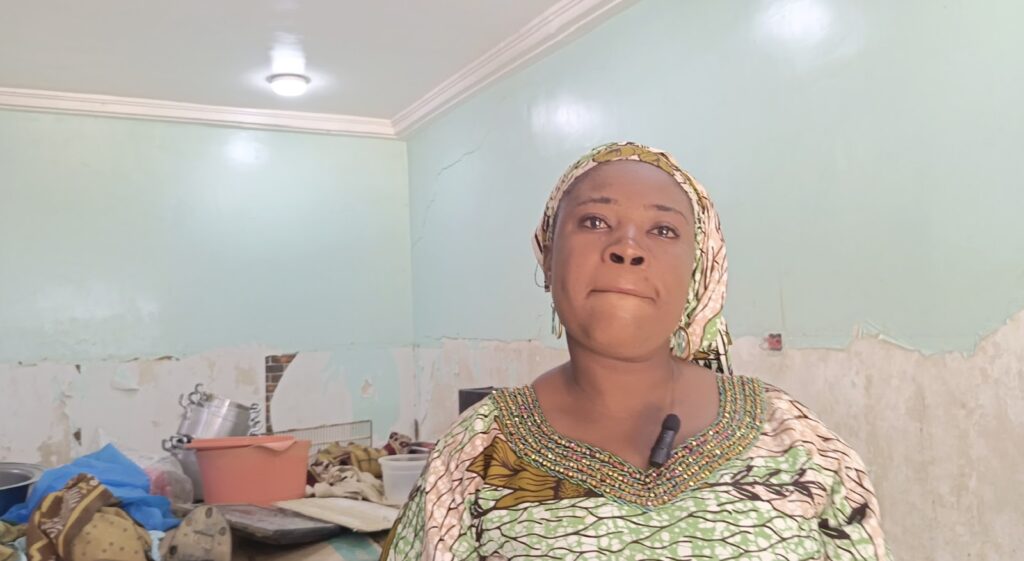
The emotional toll of her losses was evident on her face as she stood by a small food warmer and a pot of soup under a modest canopy. This makeshift setup is where she now sells rice and stew, directly in front of her once-thriving restaurant.
“I’ve been reduced to a roadside vendor, selling food from a small pot under a shade. Look at what fate has reduced me to,” she lamented. “I have to do this to keep my family fed and have some money for daily transportation. I don’t mind if it means starting from scratch.”
Narrating a similar ordeal, Hadiza Yusuf, a manager at a computer and stationery store, said over 80 per cent of their goods were destroyed by the flood and she has been traumatised since then. As she pointed towards a pile of soggy exercise books and electronics, she said “this is our livelihood, and it’s all gone.”
According to her, they lost nearly ₦200 million in their computer and accessories shop.
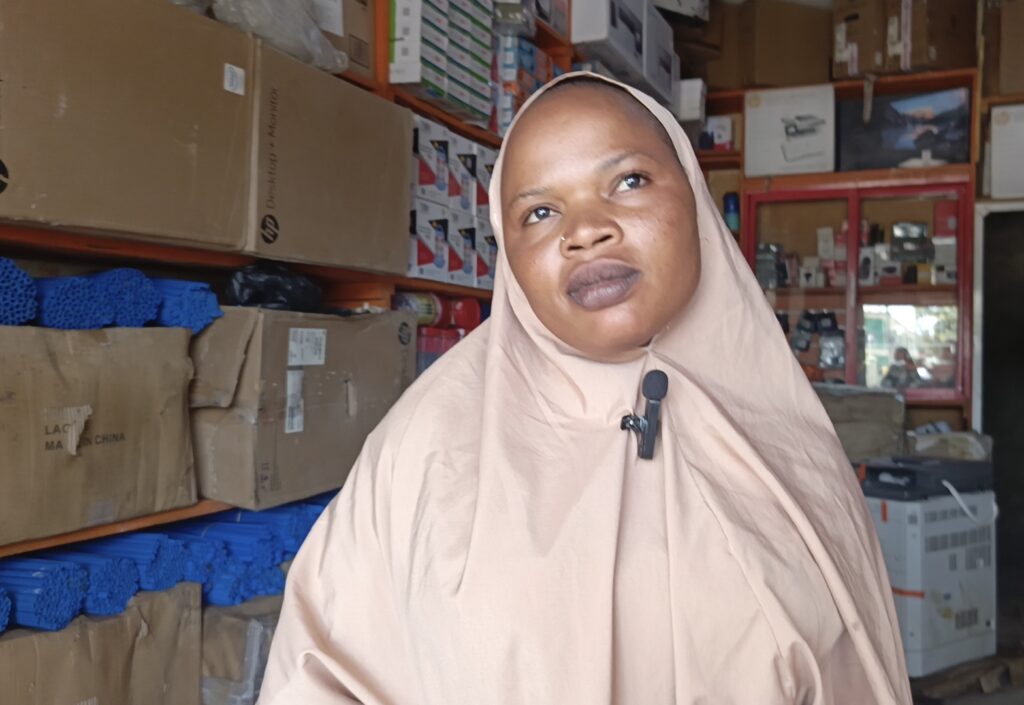
For Johnson Emmanuel, a power plant spare parts dealer, the flood has been a catastrophic blow, having lost goods worth about ₦9 million. “It feels like a nightmare I can’t wake up from,” he said.
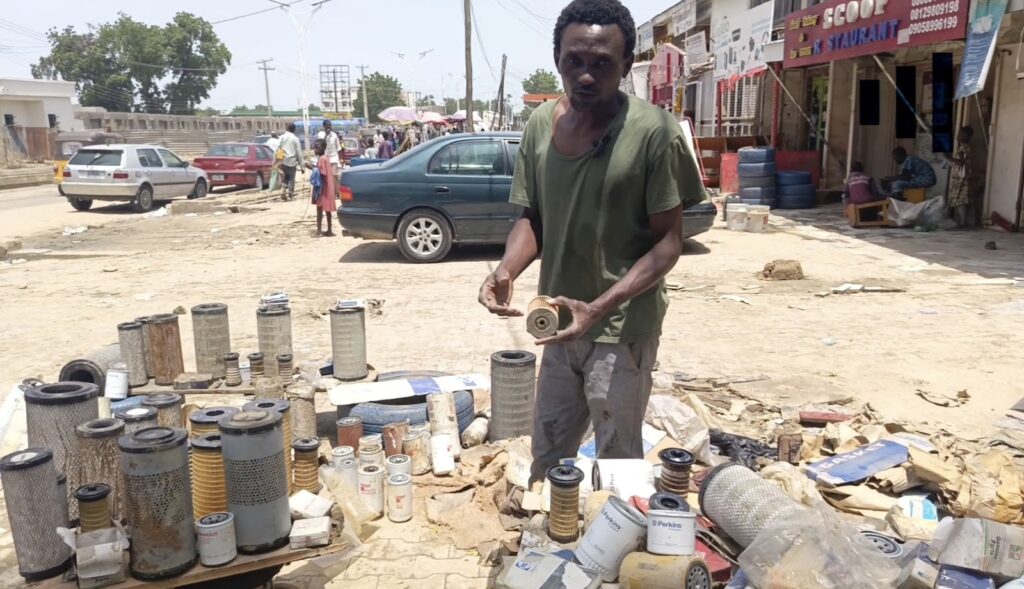
On her part, Sarah Effon, who operates a shop selling female artificial hairs and makeup accessories, told HumAngle that the devastation caused by the flood almost led her to depression.
“We are just looking unto God to see us through. My husband’s shop and my father-in-law’s were also affected. We need help; even a fraction of what we lost would go a long way,” she pleaded.
More pathetic tales
Standing amidst the wreckage of her beloved bookshop, Scholastica Manuba’s emotions overflowed. Though she received calls from some of her customers in the early hours of the flood, things had gone out of control before she arrived at the shop.
“The water had submerged everything by the time I arrived. We lost over ₦50 million in textbooks and educational materials.” Scholastica said as her eyes welled with tears.
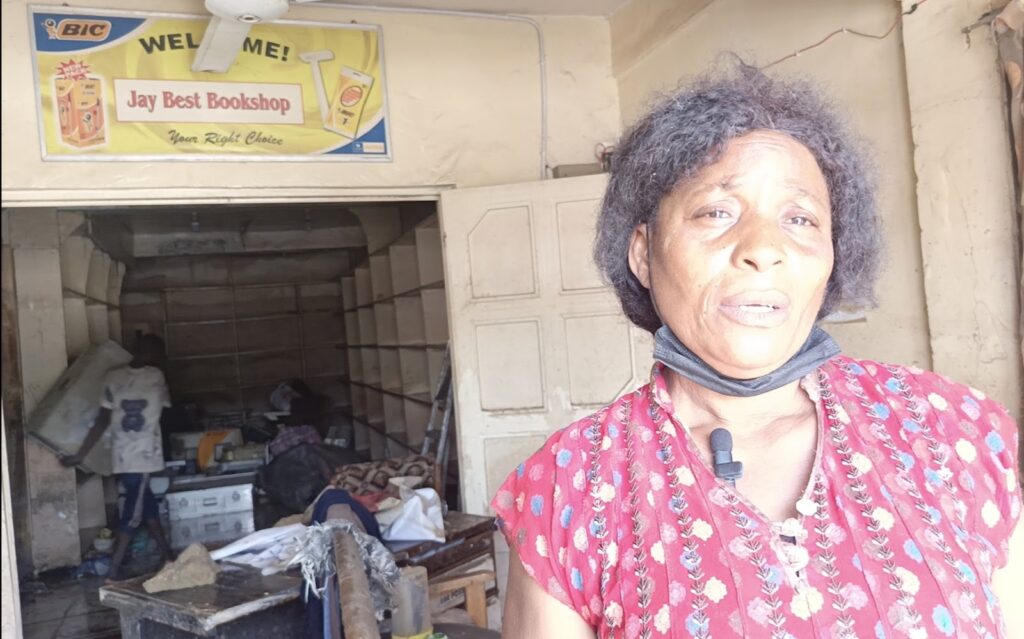
For her, the flood represents not only a financial disaster but also an emotional burden.
“This is my first time seeing a flood act this way. It’s heartbreaking to watch everything we’ve worked for over the years vanish,” she added. “I don’t even have anything to restart my business with. We’ve been operating this shop for 30 years, and I’ve never seen anything like this. I need any form of financial help because it feels like everything we’ve worked for has been washed away.”
Also, Cynthia Amaechi of Sir Liberty Bookshop, said she became traumatised when she opened her shop and found out that water had reached the height of the highest shelf. This was after the company recently invested ₦8 million to restock for school resumption.
“They are all gone and we need serious help, especially in terms of cash, because even the books we’re trying to salvage will not sell as they should.”
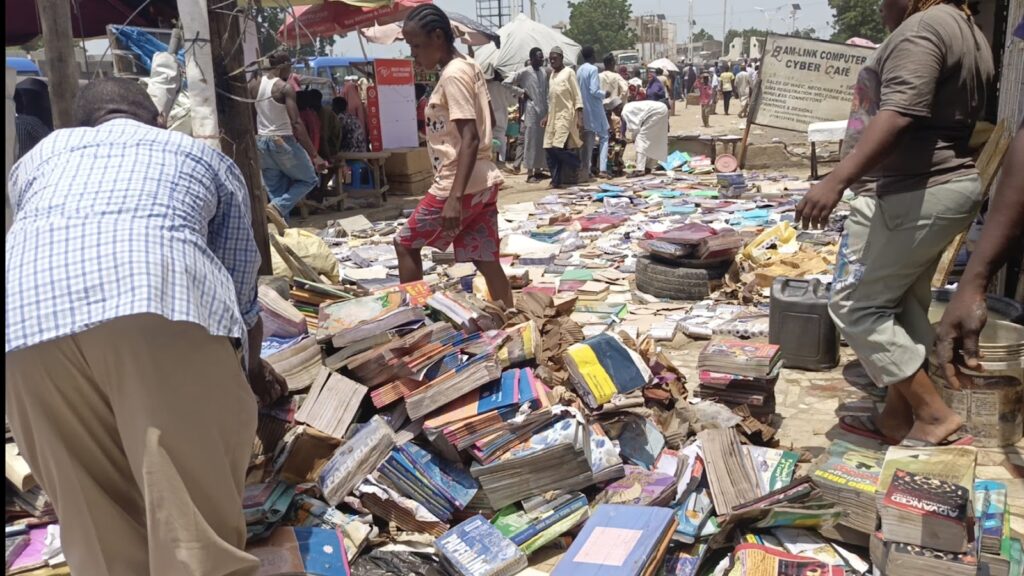
Pointing to the marks left on the wall by the receded water, Shafiu Tijjana, a photographer and entrepreneur in his mid-50 also recounts his losses.
“I have operated this business for over 20 years, but the flood destroyed everything. When I first heard about the flood, I thought the water level wouldn’t reach my knees. However, when I returned days later, it was nearly touching the ceiling,” he told HumAngle.
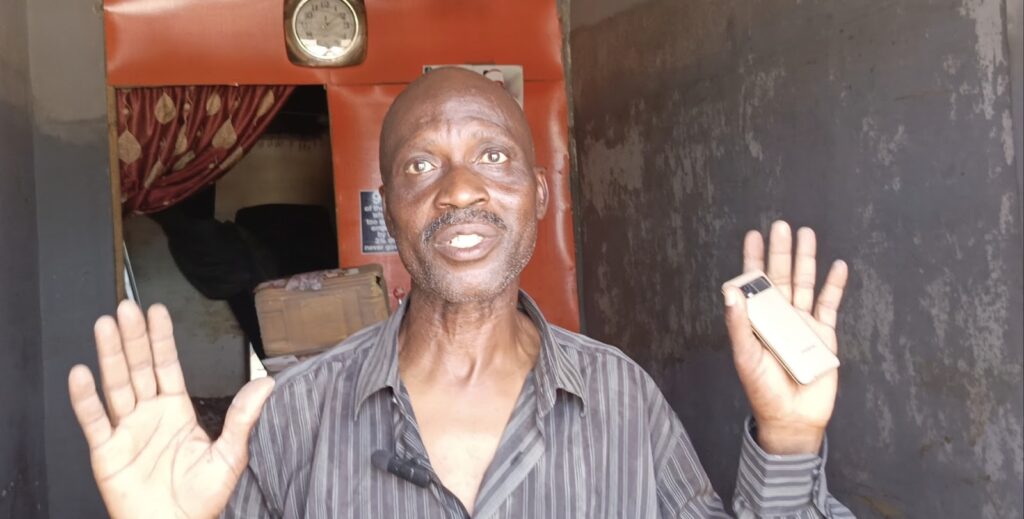
“It soaked and damaged all the computers, printers, scanners, and cameras here. I’ve estimated my losses to be between ₦3 million and ₦5 million. All I need now is some support to help me start afresh. Perhaps that’s how I envision moving forward.”
Hope
As Maiduguri begins the slow process of recovery, the community is rallying together, united by shared loss and a determination to help those affected rebuild and recover.
While some are pleading with the government to assist business owners financially, others are calling on non-governmental organisations to help them through recovery.
Meanwhile, the Borno government says it has received ₦4.4 billion out of the sum pledged for victims of the Maiduguri flood by individuals, groups, and sub-national authorities. Also, a 35-man flood disaster relief disbursement committee has been formed to distribute the food grains delivered to the state by the federal government to those directly affected by the flood.
Speaking with journalists last weekend, Borno Commissioner of Information and International Security, Abba Tar, added that an assessment team has been established to determine the extent of losses caused by the flood with the aim to provide guidance to the government on compensation to those affected.
The flood in Maiduguri, Nigeria, has left extensive damage, significantly affecting local businesses.
Business owners, including restaurant operators, bookshop owners, and traders in computer accessories and power plant parts, have faced financial ruin with losses amounting to millions of naira.
Emotional distress is palpable among the affected, with many now operating makeshift setups to sustain their livelihoods.
In response, the community is coming together to assist victims, and the Borno government has acquired ₦4.4 billion in relief funds. Efforts include forming a 35-man committee to distribute food grains and an assessment team to evaluate losses for potential compensation.
Victims are urging for more assistance from both the government and NGOs to rebuild their businesses.
Support Our Journalism
There are millions of ordinary people affected by conflict in Africa whose stories are missing in the mainstream media. HumAngle is determined to tell those challenging and under-reported stories, hoping that the people impacted by these conflicts will find the safety and security they deserve.
To ensure that we continue to provide public service coverage, we have a small favour to ask you. We want you to be part of our journalistic endeavour by contributing a token to us.
Your donation will further promote a robust, free, and independent media.
Donate HereStay Closer To The Stories That Matter





What specific challenges are business owners in Maiduguri facing after the floods?